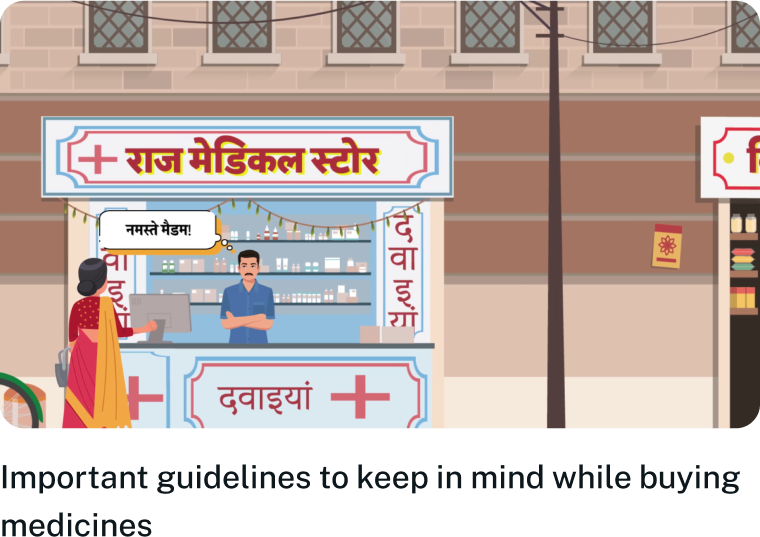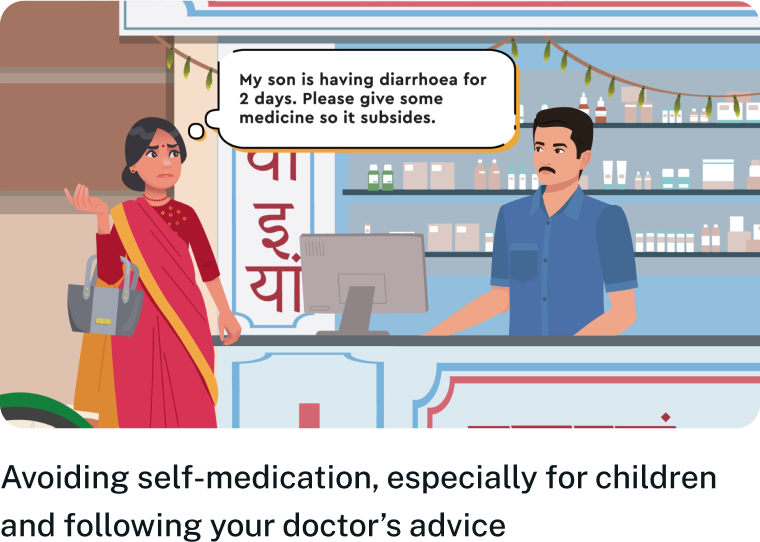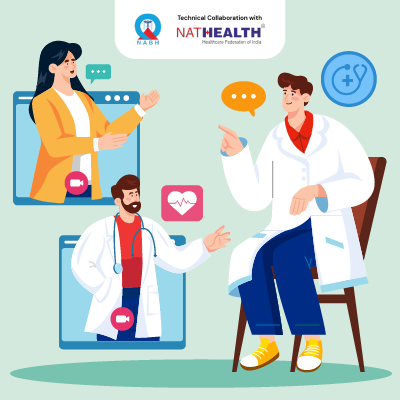Common Medication Errors
Medication errors occur when there’s a preventable mistake in using medication. Medication errors can have serious consequences, ranging from minor side effects to permanent harm.
Prescribing Errors
These can involve prescribing the wrong medication, dosage, or frequency.
Dispensing & Administration Errors
Mistakes during dispensing incudes giving the wrong medication, dosage, or quantity
Wrong dose
with your doctor to ensure they won't interfere with hospital-administered medications
Wrong route of administration
This happens if a medication is taken by mouth when it should be injected, or if it is injected into the wrong vein or muscle.
Missed dose
This includes patients forgetting to take a medicine or if a healthcare professional fails to administer it.
Extra dose
If a patient takes a medication twice by accident, or if a healthcare professional accidentally administers a medication twice.
Drug interactions
When a patient takes two or more medications that interact with each other. These interactions can cause serious side effects.
How to Reduce Medication Errors?
- Improved Training: Strengthening training programmes for healthcare professionals.
- Standardised Systems: Implementing standardised prescribing, dispensing, and administration protocols can improve consistency and reduce errors.
- Electronic Health Records: Utilising electronic health records can improve communication and reduce the risk of prescribing errors.
- Patient Education: Empowering patients to understand their medications and ask questions about their treatment plan.
Safe Medication Practices
Tips for Consumption of Prescribed Medicines
- Follow your doctor’s instructions precisely: This includes dosage, frequency, and duration of treatment. Don’t adjust your medication regimen on your own.
- Take medications with or without food as directed: Certain medications need to be taken on an empty stomach, while others require food for proper absorption.
- Pay attention to potential interactions: If you take multiple medications or herbal supplements, discuss potential interactions with your doctor.
- Don’t share medications: Medications prescribed for you might not be suitable for someone else.
- Store in a cool, dry place: Avoid storing them in the bathroom (due to humidity) or in direct sunlight. Keep them out of reach of children and pets. Consider using a pill organiser.
Tips For Handling Medicines
- Keep medications in their original containers: This ensures you have the correct information about the medication, dosage, and expiry date.
Maintain a medication list: Keep a record of all the medications with names, dosages and frequencies. This can avoid medication errors. - Dispose of expired or unused medications safely: Don’t flush medications down the drain or throw them in the trash. Ask your pharmacist about safe disposal methods in India.
- Carry the prescription with you: If you travel or see a new doctor, having a list of your medications readily available is crucial.
- Report side effects to your doctor: If you experience any side effects from your medications, inform your doctor immediately.
Drug Interactions
A drug interaction occurs when a substance you take, like a medication, supplement, or even food, affects the way another substance works in your body.

Understanding Drug Interactions
- Reduced effectiveness: One drug might interfere with the absorption, metabolism, or action of another drug, making it less effective.
- Increased side effects: Certain combinations can amplify the side effects of one or both drugs.
- Serious health risks: In severe cases, drug interactions can lead to serious health problems, like organ damage or even death.

HOW TO IDENTIFY POTENTIAL DRUG INTERACTIONS?
- Talk to your doctor/pharmacist: They are the best people to identify potential interactions based on your medications and health conditions.
- Maintain a medication list: Keep a record of all medications (prescription, OTC drugs, and supplements) you take, and share it with your doctor/ pharmacist.
- Use online resources: Several online resources can help check for drug interactions. However, these should not replace consulting a healthcare professional.

TIPS TO MINIMISE DRUG INTERACTIONS
- Be honest with your doctor: Disclose all medications (prescription, over-the-counter, and supplements) and herbal products you take.
- Ask about potential interactions: Before starting a new medication, inquire about any potential interactions with your current medications.
- Take medications as directed: Don't skip doses, take extra doses, or change your medication regimen without consulting your doctor
Questions for your Pharmacist
Your pharmacist is a valuable resource for information about your medications and can help you get the most out of your treatment plan. Listed below are some questions you can ask your pharmacist to gain a better understanding of your medications.
About the medication
- What is the name of this medication and what is it used for?
- Are there any generic alternatives available? (Generics can be significantly cheaper)
- What are the potential side effects of this medication?
- How long does it typically take for this medication to start working?
- How should I store this medication? (Room temperature, refrigerator, etc.)
Understanding prescription
- Is this medication safe to take with my other medications and supplements?
- Does this medication interact with any foods or drinks I should be aware of?
- How long should I take this medication?
- What should I do if I miss a dose?
- Can I take this medication if I am pregnant or breastfeeding?
Clarifying instructions and managing side effects
- Can you explain how to take this medication correctly? (Especially if it involves special instructions, like taking it with food or using an inhaler)
- What should I do if I experience any side effects or discomfort? (Are there over-the-counter medications that can help?)
- Are there any warning signs I should be aware of that might indicate a serious side effect?
- Can you recommend any tips for managing the side effects of this medication?
Branded vs Generic Drugs
The landscape of branded vs. generic drugs in India is quite unique compared to some other countries. Below are some key aspects to consider before opting for either.
Points of Similarities
- Same Active Ingredients: Both branded and generic drugs contain the same active pharmaceutical ingredients (APIs) in the same strength and dosage form.
- Bioequivalence: Generic drugs must be bioequivalent to their branded counterparts, meaning they produce the same therapeutic effect in the body.
Key Differences and Cost Considerations
- Brand vs. Generic Terminology: In India, companies can market generic drugs under brand names. These are called “branded generics.” This can blur the line between traditional branded drugs and generics for patients. Be doubly sure about active ingredients.
- Price Difference: Generics are a cheaper option as compared to branded drugs.
- Price Regulation: The government regulates the prices of essential drugs, including many generics to make them more affordable for everyone.
Choosing Branded Vs Generic Drugs
- Doctor’s Recommendation: Always consult your doctor for the most suitable option. They can advise you on whether a true generic or a branded generic is appropriate.
- Cost Considerations: True generics are generally the most affordable option. However, a branded generic might be cheaper compared to branded drugs.
- Availability: Not all branded drugs have true generic alternatives available yet. You might encounter branded generics more frequently.
Video Gallery


Sales Growth.
Our clients describe us as a product team which creates amazing UI/UX experiences, by crafting top-notch user experience of funny the century rather.
00%
Increased by
the last 2 years.
Choose a Service Plan.
Our clients describe us as a product team which creates amazing UI/UX experiences, by crafting top-notch user experience of funny the century rather.
Personal
- Core business process revision;
- Team management;
- Custom infrastructure;
- Custom design & features.
Corporate
- Core business process revision;
- Team management;
- Custom infrastructure;
- Custom design & features.
Frequently Asked
Questions.
How does the 14-day trial work?
When our team provides design and digital marketing. Applied arts can include industrial design, graphic design, fashion design. The app provides design and digital marketing.
How do I pay for your service?
When our team provides design and digital marketing. Applied arts can include industrial design, graphic design, fashion design. The app provides design and digital marketing.
How can I cancel my subscription?
When our team provides design and digital marketing. Applied arts can include industrial design, graphic design, fashion design. The app provides design and digital marketing.

